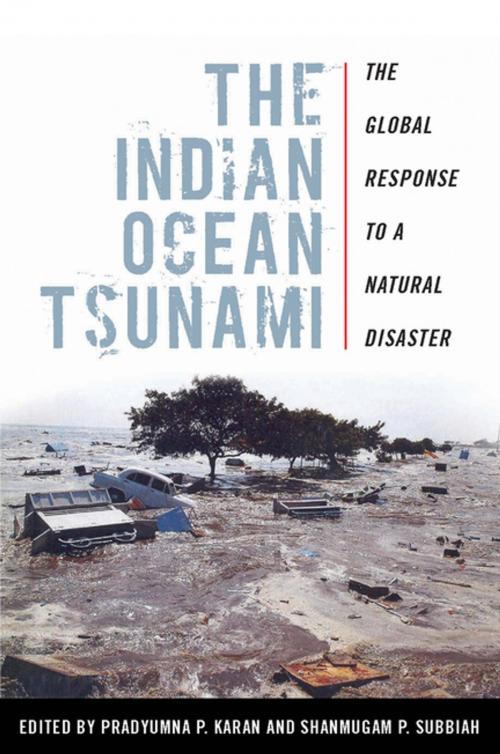The Indian Ocean Tsunami
The Global Response to a Natural Disaster
Nonfiction, History, World History| Author: | ISBN: | 9780813140056 | |
| Publisher: | The University Press of Kentucky | Publication: | September 29, 2010 |
| Imprint: | The University Press of Kentucky | Language: | English |
| Author: | |
| ISBN: | 9780813140056 |
| Publisher: | The University Press of Kentucky |
| Publication: | September 29, 2010 |
| Imprint: | The University Press of Kentucky |
| Language: | English |
On December 26, 2004, a massive tsunami triggered by an underwater earthquake pummeled the coasts of Thailand, Indonesia, Sri Lanka, and other countries along the Indian Ocean. With casualties as far away as Africa, the aftermath was overwhelming: ships could be spotted miles inland; cars floated in the ocean; legions of the unidentified dead -- an estimated 225,000 -- were buried in mass graves; relief organizations struggled to reach rural areas and provide adequate aid for survivors.
Shortly after this disaster, researchers from around the world traveled to the region's most devastated areas, observing and documenting the tsunami's impact. The Indian Ocean Tsunami: The Global Response to a Natural Disaster offers the first analysis of the response and recovery effort. Editors Pradyumna P. Karan and S. Subbiah, employing an interdisciplinary approach, have assembled an international team of top geographers, geologists, anthropologists, and political scientists to study the environmental, economic, and political effects of the 2004 Indian Ocean tsunami.
The volume includes chapters that address the tsunami's geo-environmental impact on coastal ecosystems and groundwater systems. Other chapters offer sociocultural perspectives on religious power relations in South India and suggest ways to improve government agencies' response systems for natural disasters.
A clear and definitive analysis of the second deadliest natural disaster on record, The Indian Ocean Tsunami will be of interest to environmentalists and political scientists alike, as well as to planners and administrators of disaster-preparedness programs.
On December 26, 2004, a massive tsunami triggered by an underwater earthquake pummeled the coasts of Thailand, Indonesia, Sri Lanka, and other countries along the Indian Ocean. With casualties as far away as Africa, the aftermath was overwhelming: ships could be spotted miles inland; cars floated in the ocean; legions of the unidentified dead -- an estimated 225,000 -- were buried in mass graves; relief organizations struggled to reach rural areas and provide adequate aid for survivors.
Shortly after this disaster, researchers from around the world traveled to the region's most devastated areas, observing and documenting the tsunami's impact. The Indian Ocean Tsunami: The Global Response to a Natural Disaster offers the first analysis of the response and recovery effort. Editors Pradyumna P. Karan and S. Subbiah, employing an interdisciplinary approach, have assembled an international team of top geographers, geologists, anthropologists, and political scientists to study the environmental, economic, and political effects of the 2004 Indian Ocean tsunami.
The volume includes chapters that address the tsunami's geo-environmental impact on coastal ecosystems and groundwater systems. Other chapters offer sociocultural perspectives on religious power relations in South India and suggest ways to improve government agencies' response systems for natural disasters.
A clear and definitive analysis of the second deadliest natural disaster on record, The Indian Ocean Tsunami will be of interest to environmentalists and political scientists alike, as well as to planners and administrators of disaster-preparedness programs.















